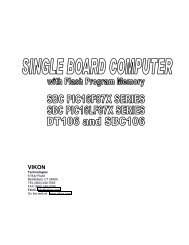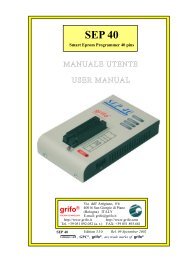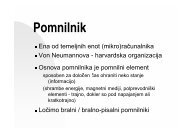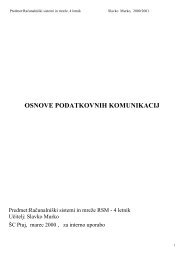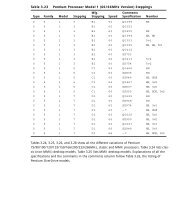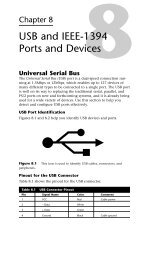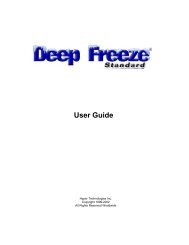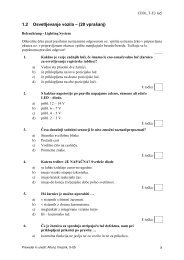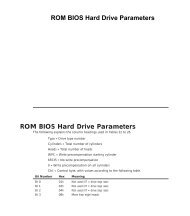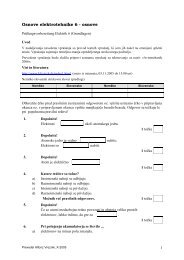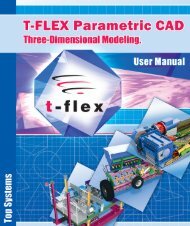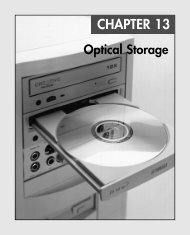UPGRADING REPAIRING PCs
UPGRADING REPAIRING PCs
UPGRADING REPAIRING PCs
You also want an ePaper? Increase the reach of your titles
YUMPU automatically turns print PDFs into web optimized ePapers that Google loves.
52<br />
Chapter 2—System Components and Configuration<br />
4. Systems with COM 4 default to “sharing” COM 2’s IRQ 3. This will cause system lockups in<br />
Windows if a serial mouse is used on COM 2 with a modem on COM 4. Use the modem, and<br />
the IRQ conflict crashes the system. To avoid problems, set the device using COM 4 to a different<br />
IRQ, or disable COM 2 and use COM 2 for the modem.<br />
DMA<br />
Direct Memory Access permits high-speed data transfer between<br />
I/O devices and memory without CPU management. This method<br />
of data transfer boosts performance for devices that use it, but<br />
because there is no CPU management, the possibility of data corruption<br />
is higher than for non-DMA transfers. Although DMA<br />
channels can theoretically be “shared” between devices that are not<br />
in use at the same time, this is not a recommended practice.<br />
PCI cards don’t use these DMA channels (with the exception of<br />
sound cards, which are emulating the ISA-based Sound Blaster<br />
or compatibles—the major users of DMA channels today). See<br />
Table 2.21.<br />
Table 2.21 16/32-Bit ISA/PCI Default DMA-Channel Assignments<br />
Standard Bus Card Recommended<br />
DMA Function Slot Type Transfer Use<br />
0 Available Yes 16-bit 8-bit Integrated sound<br />
1 Available Yes 8-/16-bit 8-bit 8-bit sound<br />
2 Floppy disk Yes 8-/16-bit 8-bit Floppy<br />
controller controller<br />
3 Available Yes 8-/16-bit 8-bit LPT1: in ECP mode<br />
4 1st DMA<br />
controller<br />
cascade<br />
No — 16-bit —<br />
5 Available Yes 16-bit 16-bit 16-bit sound<br />
6 Available Yes 16-bit 16-bit ISA SCSI adapter<br />
7 Available Yes 16-bit 16-bit Available<br />
Note that PCI adapters don’t use these ISA DMA channels; these are only for ISA cards.<br />
On PC/XT systems with only 8-bit ISA slots, only DMA channels 1–3 are available. DMA channel<br />
2 was used for the floppy controller, as it is today, but channels 1 and 3 were not assigned to<br />
standard devices.<br />
Determining Actual IRQ and DMA Usage<br />
Although these tables provide the “official” guidelines for IRQ and<br />
DMA usage, these settings might not be true for all systems at all<br />
times.<br />
Add-on network, sound, serial, parallel, and SCSI cards can often be<br />
moved to different IRQ and DMA channels to work around conflicts.<br />
Non-standard settings can be done manually with some cards<br />
and is a virtual certainty with PnP cards used with Windows 9x and<br />
Windows 2000. Well-designed PnP cards already installed in a



